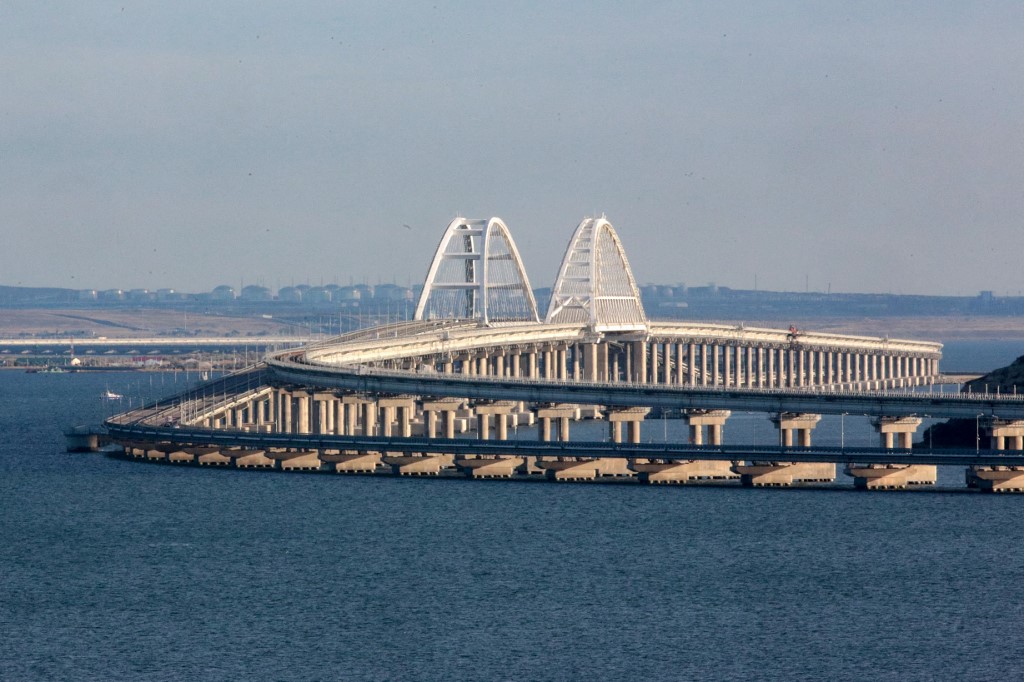The decision to give combat boats to Ukraine may seem surprising, as Ukraine primarily needs effective air defense systems, armored vehicles, artillery pieces and ammunition. However, combat boats can be equally important and are certainly timely.
The Defense Ministry’s Main Intelligence Directorate (HUR) reported the downing of a Russian Su-30SM fighter jet over the Black Sea on Sept. 11. The aircraft was shot down with a regular portable air defense system (MANPADS) mounted on a small combat boat. This proves that Ukraine does need various means of defense, including naval ones. The Russian Air Force pilot probably never expected a threat from a small boat in the middle of the open sea, which highlights the effectiveness of such platforms in modern combat environments.
What exactly is the CB90?
The Combat Boat 90 (CB90) is a Swedish military high-speed amphibious landing craft developed by Dockstavarvet. Its name signifies the year 1990 when production began.
This boat was primarily developed for the operational delivery of landing groups, patrolling coastal areas, and conducting special operations. It has a crew of three, capacity to transport up to 18 paratroopers in full gear, and can carry up to 4.5 tons of payload. It can be effectively used for reconnaissance, mining of water areas, and surveillance of the enemy.

Sanctions Busting: Germany’s Role in Dodging Russian Sanctions
The CB90 is equipped with three large-caliber Browning M2HB machine guns, two of which are located on the sides of the boat, while the third is positioned behind the wheelhouse. Additionally, a 40-mm MK-19 automatic grenade launcher can be mounted on the boat. The primary weapon of the CB90 is the Swedish Saab Trackfire RWS system, a remote-controlled platform that enables the mounting of a large-caliber machine gun or an automatic grenade launcher. This system can be controlled from inside the boat, allowing for precise firing at 360 degrees.
For mining tasks, the boat can carry up to four sea mines or six depth charges. Sea mines are designed to destroy or damage enemy surface vessels, while depth charges are used to destroy underwater objects such as submarines.
The CB90 can also be equipped with RBS 17 SSM (Hellfire) light anti-ship missiles. This missile system considerably enhances the boat's combat abilities, enabling it to effectively engage small surface targets and ground objects up to 11 kilometers away. This versatility makes the CB90 not just a means of transportation and maneuverability, but also a potent platform for engaging targets with firepower.
The CB90 is an extremely fast and agile boat, capable of making sharp turns and stopping from its maximum speed of 74 km/h (40 knots) in just 2.5 hull lengths. This exceptional maneuverability is achieved thanks to its lightweight, low draft, and two water jets that provide high power and control. The boat is powered by two Scania DSI14 V8 diesel engines, each generating 625 horsepower. It measures 14.9 meters in length, has a displacement of 18 tons, and a draft of only 0.8 meters, allowing it to operate in shallow waters and coastal areas.
The CB90 has an operational range of 440 kilometers, but only if driven in economy mode at a speed of 37 km/h. Due to its capabilities, the CB90 is effective in combat operations and can also be used for quick evacuation or landing force deployment, making it a versatile tool for a variety of operations.
Origin and evolution
The CB90 was originally developed for the needs of the Swedish Navy. In 1990, the country's Ministry of Defense initially ordered 120 units. In 2002, an additional order was placed for 27 more CB90s, by then with improved ballistic protection and a crew protection system to guard against weapons of mass destruction. After a successful operation at home, the Swedish CB90 began being actively exported to other countries.
CB90 boats of various configurations are currently in service with the navies of Sweden, Norway, Greece, Mexico, the US, and Malaysia. Approximately 300 CB90 units have been built in total.
In 2021, Saab unveiled an updated model with the designation CB90N (where "NG" stands for Next Generation). The CB90NG model features a modernized fire control system, improved surveillance tools, and the capability to integrate various combat modules. Furthermore, the boat has enhanced ballistic protection, increased speed and maneuverability, and improved radar stealth characteristics, making it even more effective in combat.
Such high-speed and maneuverable boats can be effectively used by the HUR and the Special Operations Forces of Ukraine to carry out sabotage operations in temporarily occupied territories.
Thanks to these boats, unexpected raids by Ukrainian special forces on the territory of temporarily occupied Crimea can become even more effective.
In addition, the possibility of retrofitting those boats already in Ukraine should not be dismissed. Ukrainian ingenuity and technical expertise have been demonstrated repeatedly since the start of Russia's full-scale invasion, so it is not unreasonable to expect that these boats could be modified to serve unexpected functions, such as deploying air defense systems in the Black Sea. This would shift their focus from missile defense to attacking Russian aircraft, creating an additional level of threat to the enemy and expanding the air defense capabilities of Ukraine at sea, increasing the danger to Russian planes.
You can also highlight the text and press Ctrl + Enter







